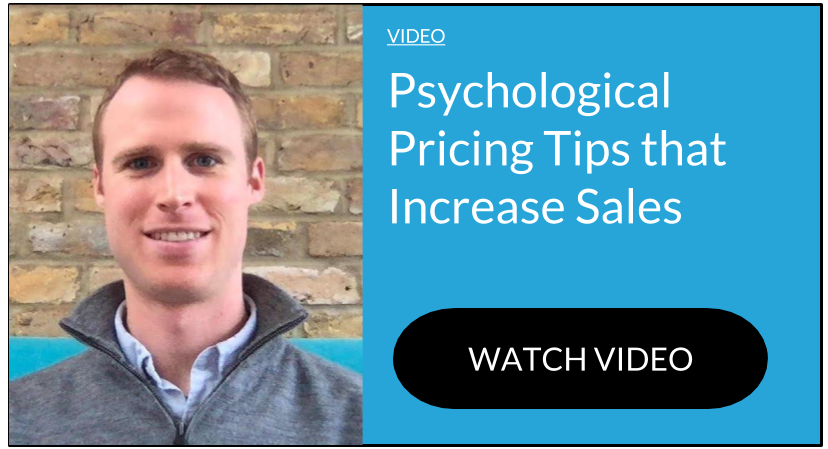What's almost the first thing you say to your prospect when you walk through their door? If it's something like "the price will be
You are a human being, your prospect is a human being and the ability to talk about more than just the price is essential if you are going to get that sale.
Yes, it's true that unless you intend for this visit to last all day your finely honed negotiating skills will be brought into play reasonably early on but diving straight for the "jugular" price will not get you much respect and could even jeopardise the whole deal.
Although you and your prospect may sit on opposite sides of the table during a negotiation, if a deal is to be signed you will be partners, hopefully for the long haul, so keep the talk light and friendly before bringing up
Sales negotiators should be concerned about finding a solution or an arrangement that is satisfactory to both parties so they need to look for “win-win” situations, where both parties are happy with the results of the negotiation; it's definitely not all about the price so hold fire on that information until absolutely necessary.
Be Prepared
Being prepared before entering sales negotiations accounts for 90% of negotiation success.
The more and better prepared you are, the more likely the outcome of your negotiations will be positive; plan strategies for every scenario, particularly on price.
Knowledge is power so get all the information you can about your prospect, think through the entire negotiation process, and be fully prepared for any pricing eventuality.
You will need to decide the concessions you're willing to accept in advance. In the heat of the negotiations, a 30% discount or additional six months of support might seem perfectly acceptable but it's only when you get back to the office and start drafting up a contract that you realise you agreed to terms that are not in your favour.
Clearly defining the limits on price discounts, freebies, or other add-ons before you even meet with your prospect will hopefully ensure you come to a mutually beneficial agreement.
So, what do you do when your prospect comes up with a list of alternatives to what you are offering? Hopefully, you will have already identified these alternative solutions prior to your meeting and you can provide data and information to demonstrate why your product is superior.
Also, that the prices you are offering are fair and competitive. Remember, if you are offering a very good deal there will be fewer acceptable alternatives out there.
The best way to be prepared for a negotiation is to clearly define what you are willing to settle for and beyond which is unacceptable. You should know your absolute bottom line before you enter negotiations and this will help you to avoid getting manipulated by prospects.
When you are compromising on price, you are shedding a portion of the margin your company should have earned and the absolute bottom line will be your worst case scenario.
Build Value to Justify Price
"Perhaps the reason price is all your customers care about is because
you haven't given them anything else to care about." Seth Godin
Before you bring up the price, build value in your prospect’s mind by focusing on the underlying interests of your prospect and how your product or service will benefit them. If you are able to quantify the value that can be gained by what you are offering, convincing the prospect will be easier.
Give your price legitimacy by providing prospects with reasonable justifications as to why they should do business with you. Remember, decision makers buy values and benefits, not features. Some examples of the hidden value of a sale include:
- Saving time
- Saving money
- Product/service guarantees
- Warranties
- Training
- Installation
- Free delivery
- Instant availability
- Technical knowledge and expertise available
- Exceptional customer service
Make sure you are selling on value before you bring up the price.
Offer Alternatives to Cash Discounts
Price is tied to value, and value tied to a customer's perception of and satisfaction with a product so you might consider offering add-ons or freebies in lieu of a lower price.
In order to counter a prospect's request for a discount, you need to offer alternatives that cost little or less in comparison - but make sure what you are offering has a high-value perception.
Design a list of alternatives to cash discounts (some mentioned above) that resonate high value.
Listen, Don't Speak
Ok, so you've presented the terms of the deal and discussed prices but the prospect would like to negotiate the terms. Let them start the conversation.
In the spirit of being accommodating, salespeople are often tempted to offer a discount or an adjustment before the prospect even opens their mouth.
The fact is you don't actually know what they're going to say! Just as in other areas of sales, it pays to listen first, and then speak.
If Your Prospect Still Requests a Discount
OK, so a discount has been requested but if you are to give a concession you need to get something back in return. Healthy salesperson-customer relationships are borne out of mutual respect and trust.
With this in mind, salespeople shouldn't accept every single one of a prospect's demands without making some requests of their own.
A straight price reduction is the most expensive discount a company can offer, and the hardest to avoid in a negotiation.
So, even if you try justifying the original price or offer alternatives to discounts, there will be some deals where you will have no other option than to offer a discount.
However, you can still turn that around in your favour by asking for something in return.
Some things you could ask for include:
- Shorter payment terms/Prepayment
- A larger order (Up-sell)
- Purchase of additional products/services (Cross-sell)
- Opportunities for recurring revenue
Be Patient
Price is not always the most important thing in a sale and it is important to ensure the customer is aware of the other benefits they are receiving before you bring up the price.
You need to take the time to prepare good questions to ask to get clarity and understanding on each point as you go
Patience is a virtue and good negotiators are very patient. They concentrate first on getting agreement on all the parts of the contract that the two parties have in common before they go on to settling price.
Walk Away if Necessary
If the demands being made become unreasonable or unprofitable for your company, don't be afraid to walk away from the deal.
A customer who only agreed to sign if the contract was radically amended or the price was drastically reduced is bound to cause problems down the road - and since they clearly don't see much value in what you are offering, it's only a matter of time before they will become dissatisfied. It may be necessary to get out whilst you still can.
Related posts
How to Execute Value-Based Pricing
Value-Based Pricing for Ecommerce Companies
What Are the Most Popular Pricing Strategies by Industry Sector?
Forget Cost-Plus Pricing – Sell Value Instead
8 Tips for Highly Effective Pricing
9 Factors that Affect a Customer's Willingness to Pay
6 Pricing Psychological Triggers that Win Sales
Are You Addicted to Discounting?
Sources
https://blog.hubspot.com/sales/essential-negotiation-skills-for-salespeople
https://www.linkedin.com/learning/sales-negotiation/how-to-start-a-negotiation-with-noble-purpose
https://www.insidesalesbox.com/blog/10-sales-negotiation-skills-every-sales-rep-must-master
https://www.saleshacker.com/discussing-sales-pricing-early/
http://smallbusiness.chron.com/top-ten-effective-negotiation-skills-31534.html
Monetizing Innovation by Madhavan Ramanujam and Georg Tacke, 2016
Priceless: The Hidden Psychology of Value by William Poundstone, 2014
Pricing for Profit by Peter Hill, 2013


